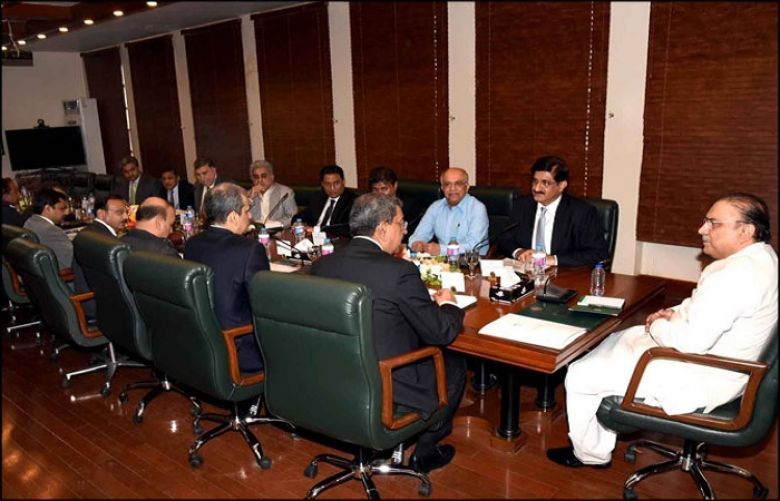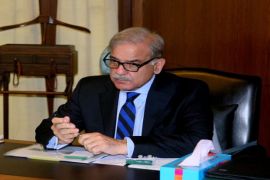Former president and Pakistan Peoples Party chairperson Asif Ali Zardari on Monday advised Chief Minister Sindh Murad Ali Shah to make efforts to expel Afghan nationals and improve security arrangements across the province.
Zardari while attending a high-level meeting at the chief minister’s house also directed to start the “smart city” project and install at least eight megapixel cameras across the city for improved security and vigilance. The meeting was also attended by the top bureaucratic and police leadership.
The former president said that there should be a strict checking mechanism along the border areas with Balochistan and Punjab where some facilitators of terrorists have taken refuge and they should be crushed with an iron hand.
“We have suffered a lot at their hands,” said Zardari who urged the chief minister to take up the issue of Afghan nationals living in Sindh and expel them out of the province and the country. He said that some forces were working to weaken Pakistan but they would not allow succeeding in their conspiracy.
CM Sindh said that a detailed plan has been worked out under which the federal government will be requested to conduct an operation in various parts of Balochistan such as Wadh, Mastung, Jhal Magsi and Khuzdar districts.
Zaradi also advised CM Murad to pay compensation of Rs10 million and a job and other facilities to the family of the head constable Abdul Aleem killed in Sehwan blast.
“This is not a simple compensation for a killed head constable but it is a clear and loud message to the entire police force that the government would not leave their families alone and helpless if they sacrificed their life in the line of their duty,” he said.
CM Murad told Zardari that operations have been started in several districts across the province including Malir, Karachi as well as Hyderabad, Jamshoro, Sukkur, Larkana, Dadu, Ghotki and some other areas.
He said that a list of ninety-four madarassahs was sent to federal government for vigilance on their activities but they received a dismal response from them.
Zaradari said that they are not against those seminaries which provide religious education but rather those which promote extremism and facilitate the terrorists.
“Our forefathers had established a madarsa (seminary) where founder of the nation, Quaid-i-Azam Mohammad Ali Jinnah received education. This is the kind madsarsas we want to promote,” he said.
CM Murad said that the Sindh is the land of Sufis and peaceful people. “I am proud to say that not a single suicide bomber from Sindh has ever been found but they are being imported from other areas and countries,” he said.
He said that facilitators of terrorists have emerged in some districts they have decided to launch operation and has held a number of joint meetings of police and district administration to address these issues.
Inspector General Sindh A.D. Khawaja briefed the former president about the Sehwan blast which took place when more than four thousand devotees were present in the shrine.
He confirmed that that it was suicide blast which claimed the lives of ninety people and injured 351 others. He added that report by the bomb disposal squad said 7-8 kilograms high explosive was used along with pieces of lead, empty cartridges and ball bearings leading to a high death toll.
He said that they have collected finger prints and pieces of human organs from the scene and sent for DNA analysis, while mobile phones, CCTV footages and images have been secured for analysis, and the main bomber has also been identified.
Chief Secretary Rizwan memon said that there were 700 shrines of Sufis in Sindh which are provided security by the police, but there are several issues as most shrines have small or no boundary walls, encroachments, multiple entry and exit points, no parking facilities, inadequate body search mechanism and no female body searchers.







